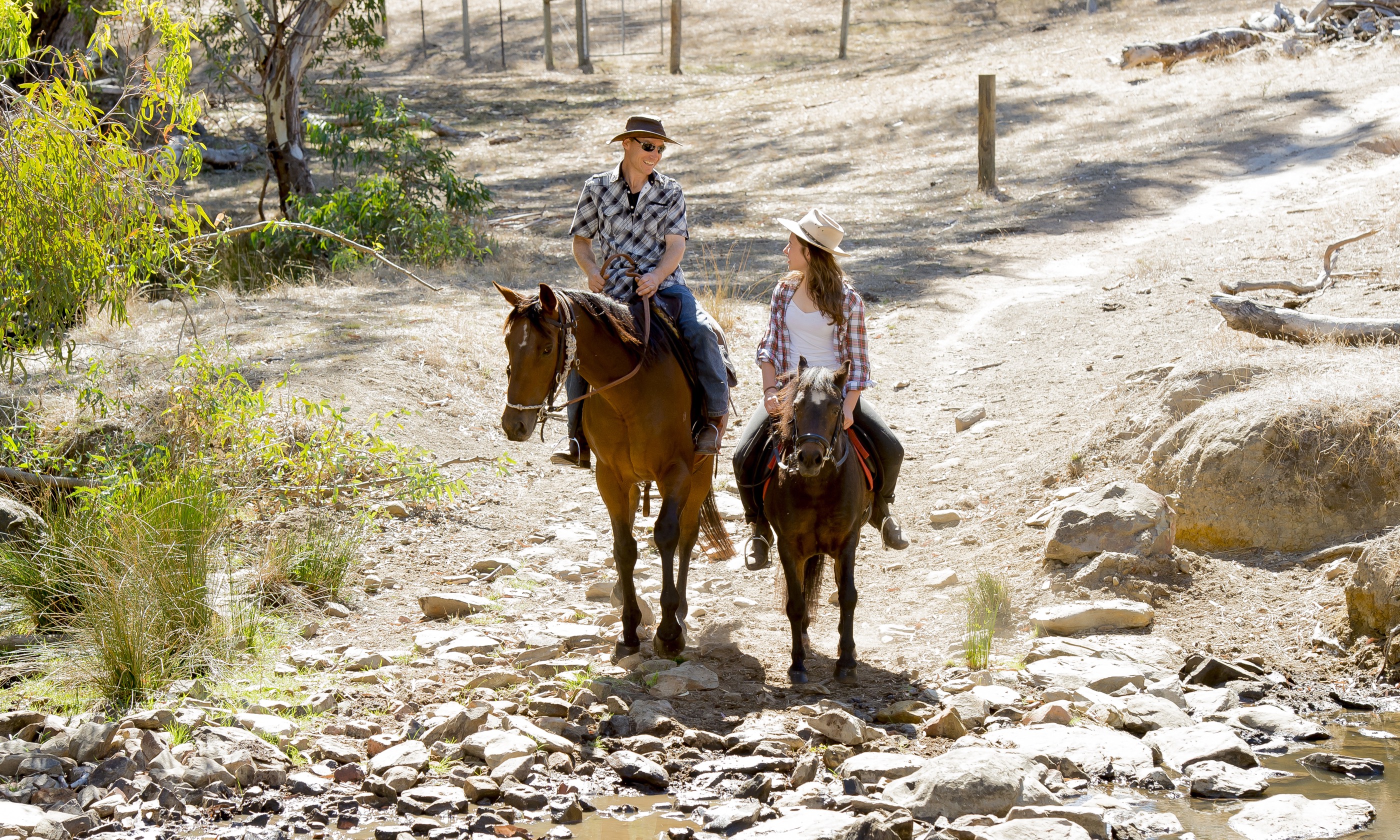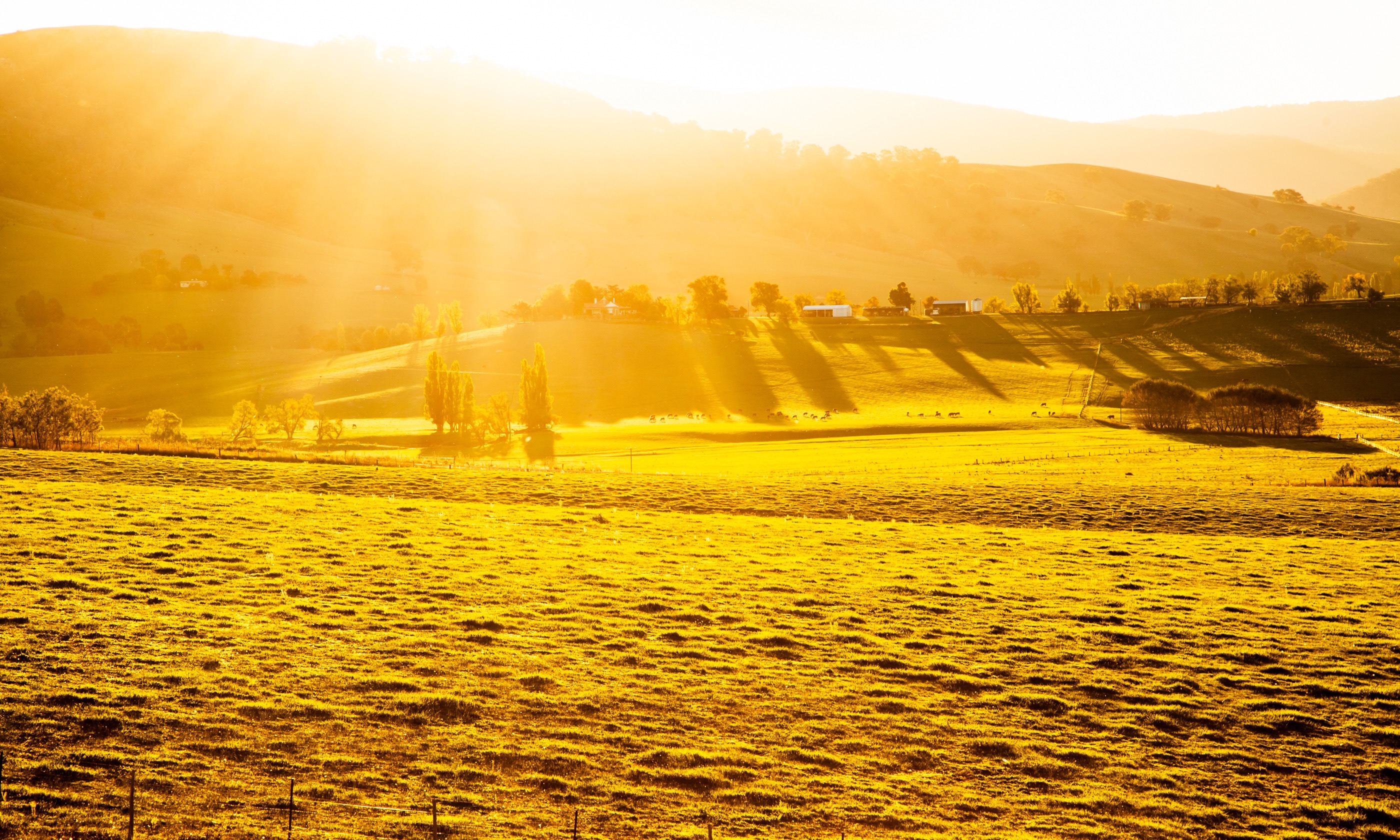
Melanie Gow is astounded by the changes in her sons as they sample life on an Aussie farm south of Sydney
The door of the twin-stack 4x4 swung open and a rangy leg in fray-bottomed jeans and worn riding boots languidly stepped out. Followed by the rest of a Driza-Bone-draped Australian stockman, who squared up and slowly tipped his Akubra hat and smiled.
Lazily waving a fly away, Steve threw us a G’day and asked if anybody wanted to help clean out the chickens.
You’ve never seen a rag tail couple of children galvanise enthusiasm for a grubby, stinky job at such speed; it was as if he was handing out sweets with the secret ingredient to happiness in them.
We’d just arrived at Mowbray Park Farm for four days playing the life of an Australian farmer; a working Australian farm built in 1822, sprawling in Wollondilly shire in the foothills of the Southern Highlands of Australia. It was a chance to drink billy tea, roll a salty, sweet scone-like mix, called damper, on a stick, and cook outdoors on a huge camp fire.
We weren’t exactly roughing it, it’s the closest Farm Stay to Sydney, but it is a world away from the time-constrained pressure of modern life. It’s a basic homestead stripped of excess luxury, where you can hear barking dogs and bleating sheep and countless quiet sounds of nature. From dawn you wake to the smell of red clay soil beaten by the sun, and feel tired as it goes down to make way for a leather black night. Surrounded by rolling hills, towering trees, picturesque farmland and natural unspoilt bush, we were seduced by the pastoral pace.
It’s the sort of world where people spend more time searching the horizon for rain than looking at their watches.
Steve casually mentioned there were feral goats at the bottom of the hill. “I think” he said, and turned to look at the boys. He knew what he was doing. Bursting with unrestrained freedom, the two of them took off running into 213 acres of real Australian working farm land.
It was liberating to let them run, let them go as feral as those goats that may or may not be out there. As Steve said, “They can run for several days and still be on the farm, not much harm can come to them.” All too soon it was 8.30pm and as black as the universe gets under a light-pollution free sky; and there was nothing left to do but eat the enormous farmhouse dinner and settle down in front of a roaring fire.
We barely had time to eat the huge breakfast the next day before scrambling for a place on the tractor for the day’s organised activities. Stockman Steve led a merry dance of goat-feeding and chicken chasing, we even learnt now to put chickens to sleep; which has never been a useful skill, and yet has never been forgotten.
In the afternoon we fed kangaroos, Kayaked in the dam, learned to crack whips and throw boomerangs. We even found time to swim in the outdoor – outdoorsy – pool, complete with freshly blown leaves floating in it from the trees that surround it. So very real and unsanitised. Far, far away from the holding pattern over reality that hotels are, yet perfect for letting children become free.
We wandered off to find the farm hands. They were lolling against the swaying four-bar fencing, whistling for the dogs to muster the sheep for shearing. The boys climbed up alongside them and adopted the casual stance as if they had been born chewing a grass stalk. We had hit a rhythm, and loved the life.

By day two we were keen to try everything. Steve perched on his sawn-off tree trunk stool and taught us all how to milk a cow. He told us wild stories of bad-tempered bulls while we hand-fed the animals with egg-laced milk. He even let us push him aside aside just to help unload the sacks of animal feed from the delivery truck that showed up.
Then it was time to take the horses out for a ride, and the boys were given their first lessons. It is impossible to forget your very first time on horseback, to be shown the saddle in the outback of Australia in one of life’s rare privileges. Brought up with horses, I got to ride out and up to the ridge across from the farm. There was a fresh wind picking up and we galloped up the hill, and paused. I could feel the mare’s heart pounding under my calves as I looked out over the vast, unspoilt land in every direction as far as I could see.
There is nothing like peering down into wombat holes, and watching scrawny cocktail chicks in their nest from the back of a working horse trained to bring the cows home. But the most perfect experience is reining that horse with one hand and actually driving cattle - even if there are less than a dozen of them. We drove them down to the bottom of the gully to drink straight from its creek, and then brought the cows home.
Working on the land, the great source of life and lives, even for the most inconsequential time, you understand the significance of it is its ability to cultivate and perfect the human being. Out in the silence and space a person sees what the earth would be without them. How beautiful and terrifying it is, and complete in its interdependent beauty. How long it has been there, how it thrives without us, how inferior we are, and how dependant on it is our life.
The Australian farming experience provides more space than most are used to, how much you engage with it or enjoy your family is in your hands. It’s a place where people work where they live and love to live where they work, and it is palpable that the promised land is under your feet.
It is a world where you learn people only look at their watches when they have to be somewhere else.